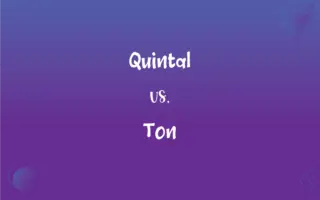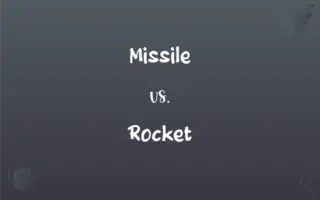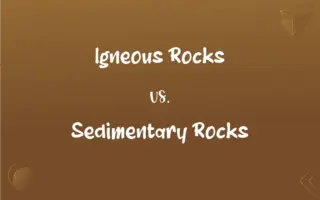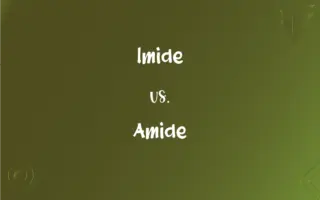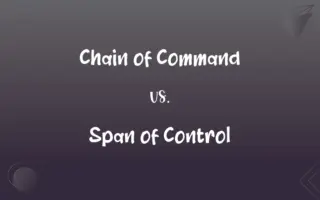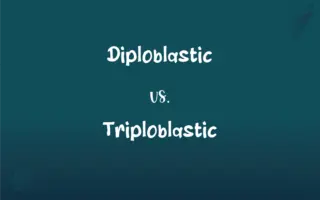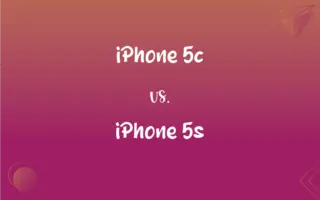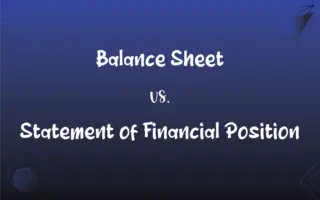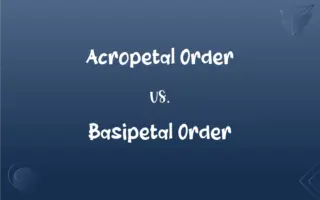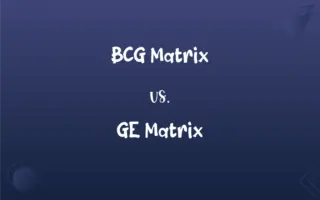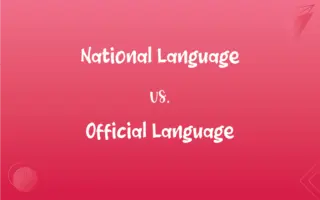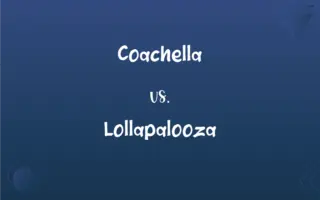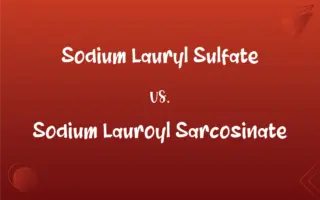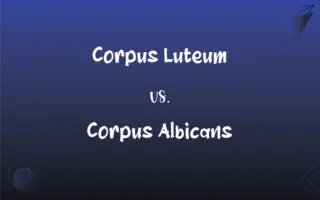Critical vs. Crucial: What's the Difference?
Edited by Aimie Carlson || By Janet White || Updated on October 7, 2023
Critical often pertains to judgment or pivotal importance; crucial denotes decisive importance, especially in the outcome of a situation.

Key Differences
At first glance, "Critical" and "Crucial" might seem interchangeable due to their shared implication of importance. However, "Critical" primarily denotes a sense of judgment, critique, or analysis, while also referring to situations or moments of vital importance. In contrast, "Crucial" solidly points to something of paramount significance, especially regarding the outcome or success of a particular situation.
When something is described as "Critical", it might be under analytical scrutiny. For instance, a "critical review" delves into the merits and flaws of a work. However, when health is described as "critical", it denotes severe concern. "Crucial", on the other hand, always underlines the utmost importance. Saying a step in a process is "crucial" emphasizes its indispensability for success.
Consider medical scenarios: a "critical condition" implies that the individual's health is unstable and could take a turn for the worse. In contrast, a "crucial moment" in a surgical procedure might be the deciding factor between recovery and complication. Thus, while both terms imply high stakes, their contexts differ.
From an etymological standpoint, "Critical" derives from the Greek "kritikos", meaning discerning or able to judge. This roots the word in analysis or discernment. "Crucial" finds its origins in the Latin "crux", meaning "cross", alluding to a point where paths intersect or a decisive juncture.
Comparison Chart
Definition
Pertaining to judgment or pivotal importance
Of decisive importance, especially in an outcome
ADVERTISEMENT
Usage
Can indicate both judgment or severe concern
Always emphasizes utmost importance
Context
Analysis, review, or situations of concern
Deciding factors or indispensable elements
Etymology
From Greek "kritikos" (able to judge)
From Latin "crux" (cross or decisive point)
Sentiment
Can be neutral (as in review) or negative (as in health)
Generally neutral, denoting significance
Critical and Crucial Definitions
Critical
Pertaining to judgment or critique
She provided a critical analysis of the novel.
ADVERTISEMENT
Crucial
Decisively important
Proper equipment is crucial for the experiment.
Critical
Of vital importance
Water is critical for survival.
Crucial
This is a crucial moment for our company.
Indispensable
Critical
Relating to a point of transition
The project is at a critical phase.
Crucial
Central or essential
Trust is crucial in a relationship.
Critical
Indicating disapproval
He was critical of the team's performance.
Crucial
Vital for determining an outcome
Making the right decision is crucial.
Critical
Judging severely and finding fault
A writer who is very critical of the government's foreign policy.
Crucial
Evidence was crucial in the trial.
Of great consequence
Critical
Relating to or characterized by criticism; reflecting careful analysis and judgment
A critical appreciation of the filmmaker's work.
Crucial
Extremely significant or important
"Infancy ... is now understood as a crucial building block of human personality" (Anne Roiphe).
Critical
Of, relating to, or characteristic of critics
A play that received great critical acclaim.
Crucial
Vital to the resolution of a crisis or the determination of an outcome
A crucial moment in the political campaign.
Critical
Including scholarly commentary and interpretation
A critical edition of Poe's stories.
Crucial
(Archaic) Having the form of a cross; cross-shaped.
Critical
Forming or having the nature of a turning point; crucial or decisive
A critical point in the campaign.
Crucial
Essential or decisive for determining the outcome or future of something; extremely important; vital.
The battle of Tali-Ihantala in 1944 is one of the crucial moments in the history of Finland.
A secure supply of crude oil is crucial for any modern nation, let alone a superpower.
Critical
(Medicine) Being or relating to a grave physical condition, especially of a patient.
Crucial
(archaic) Cruciform or cruciate; cross-shaped.
Critical
Being in or verging on a state of crisis or emergency
A critical shortage of food.
Crucial
Very good; excellent; particularly applied to reggae music.
Delbert Wilkins is the most crucial pirate radio DJ in Brixton.
Critical
Extremely important or essential
A critical element of the plan.
A second income that is critical to the family's well-being.
Crucial
Having the form of a cross; appertaining to a cross; cruciform; intersecting; as, crucial ligaments; a crucial incision.
Critical
(Mathematics) Of or relating to a point at which a curve has a horizontal tangent line, as at a maximum or minimum.
Crucial
Severe; trying or searching, as if bringing to the cross; decisive; as, a crucial test.
Critical
Chemistry & Physics Of or relating to the value of a measurement, such as temperature, at which an abrupt change in a quality, property, or state occurs
A critical temperature of water is 100°C, its boiling point at standard atmospheric pressure.
Crucial
Of extreme importance; vital to the resolution of a crisis;
A crucial moment in his career
A crucial election
A crucial issue for women
Critical
(Physics) Capable of sustaining a nuclear chain reaction
The reactor has gone critical.
Crucial
Having crucial relevance;
Crucial to the case
Relevant testimony
Critical
Inclined to find fault or criticize.
A good teacher is fair but critical.
Crucial
Of the greatest importance;
The all-important subject of disarmament
Crucial information
In chess cool nerves are of the essence
Critical
Pertaining to, or indicating, a crisis or turning point.
This is a critical moment.
Crucial
Having the power or quality of deciding;
The crucial experiment
Cast the deciding vote
The determinative (or determinant) battle
Critical
Extremely important.
It's critical that you deliver this on time.
Critical
Relating to criticism or careful analysis, such as literary or film criticism.
The movie was a critical success, but bombed at the box-office.
Critical
(medicine) Of a patient condition involving unstable vital signs and a prognosis that predicts the condition could worsen; or, a patient condition that requires urgent treatment in an intensive care or critical care medical facility.
The patient's condition is critical.
Critical
Likely to go out of control if disturbed, that is, opposite of stable.
The political situation was so critical that the government declared the state of siege.
Critical
(physics) Of the point (in temperature, reagent concentration etc.) where a nuclear or chemical reaction becomes self-sustaining.
The reaction was about to become critical.
Critical
(physics) Of a temperature that is equal to the temperature of the critical point of a substance, i.e. the temperature above which the substance cannot be liquefied.
Critical
A critical value, factor, etc.
Critical
In breakdancing, a kind of airflare move in which the dancer hops from one hand to the other.
Critical
Qualified to criticise, or pass judgment upon, literary or artistic productions.
It is submitted to the judgment of more critical ears to direct and determine what is graceful and what is not.
Critical
Pertaining to criticism or the critic's art; of the nature of a criticism; accurate; as, critical knowledge; a critical dissertation.
Critical
Inclined to make nice distinctions, or to exercise careful judgment and selection; exact; nicely judicious.
Virgil was so critical in the rites of religion, that he would never have brought in such prayers as these, if they had not been agreeable to the Roman customs.
Critical
Inclined to criticise or find fault; fastidious; captious; censorious; exacting.
O gentle lady, do not put me to 't,For I am nothing, if not critical.
Critical
Characterized by thoroughness and a reference to principles, as becomes a critic; as, a critical analysis of a subject.
Critical
Pertaining to, or indicating, a crisis, turning point, or specially important juncture; important as regards consequences; hence, of doubtful issue; attended with risk; dangerous; as, the critical stage of a fever; a critical situation.
Our circumstances are indeed critical.
The small moment, the exact point, the critical minute, on which every good work so much depends.
Critical
Marked by a tendency to find and call attention to errors and flaws;
A critical attitude
Critical
At or of a point at which a property or phenomenon suffers an abrupt change especially having enough mass to sustain a chain reaction;
A critical temperature of water is 100 degrees C--its boiling point at standard atmospheric pressure
Critical mass
Go critical
Critical
Characterized by careful evaluation and judgment;
A critical reading
A critical dissertation
A critical analysis of Melville's writings
Critical
Urgently needed; absolutely necessary;
A critical element of the plan
Critical medical supplies
Vital for a healthy society
Of vital interest
Critical
Forming or having the nature of a turning point or crisis;
A critical point in the campaign
The critical test
Critical
Being in or verging on a state of crisis or emergency;
A critical shortage of food
A critical illness
An illness at the critical stage
Critical
Of or involving or characteristic of critics or criticism;
Critical acclaim
Critical
Denoting a medical emergency
His condition is listed as critical.
FAQs
Are "Critical" and "Crucial" interchangeable?
While both imply importance, "Critical" has nuances of judgment, and "Crucial" stresses decisive significance.
What does "crucial evidence" imply?
It suggests evidence that is pivotal to the outcome of a case.
Is a "critical step" the same as a "crucial step"?
Both indicate importance, but "critical" may suggest a point of transition, while "crucial" denotes indispensability.
Can something be both "Critical" and "Crucial"?
Yes, like a "critical and crucial decision," emphasizing both its pivotal nature and decisive importance.
Can "Critical" be used in positive contexts?
Yes, as in "critical acclaim," denoting high praise.
What's the opposite of "Critical"?
It can be "uncritical" or "minor" based on context.
How is "critical" used in medical terms?
It often denotes severe concern, as in "critical condition."
Can "Crucial" be used to describe skills?
Yes, as in "crucial skills for the job," meaning indispensable skills.
What's the difference between "critical acclaim" and "crucial acclaim"?
"Critical acclaim" is common, denoting high praise. "Crucial acclaim" isn't standard and may suggest vital recognition.
Is "Crucial" stronger than "important"?
Typically, yes. It denotes greater significance or decisiveness.
How does "critical thinking" relate to judgment?
It denotes the ability to analyze, evaluate, and form judgments.
If a situation is "crucial," is it always urgent?
Not necessarily; it denotes significance, but not always urgency.
Why is a moment described as "crucial"?
It emphasizes the moment's decisive or determining importance.
Can a person be "Critical"?
Yes, indicating they often judge or critique.
If feedback is "critical," is it negative?
Not necessarily. It could be analytical or constructive but can also be negative.
What does "crucial point" imply?
A point of great significance or a deciding factor.
What's a synonym for "Crucial"?
"Vital" or "essential" can be synonyms.
Does "crucial" have roots in religious contexts?
Its origin is from "crux" meaning "cross," but its common usage isn't strictly religious.
What does "critical mass" mean?
It's the minimum amount of something required to start or maintain a process.
Can "critical" mean "in danger"?
In contexts like health, yes. For example, "critical condition."
About Author
Written by
Janet WhiteJanet White has been an esteemed writer and blogger for Difference Wiki. Holding a Master's degree in Science and Medical Journalism from the prestigious Boston University, she has consistently demonstrated her expertise and passion for her field. When she's not immersed in her work, Janet relishes her time exercising, delving into a good book, and cherishing moments with friends and family.
Edited by
Aimie CarlsonAimie Carlson, holding a master's degree in English literature, is a fervent English language enthusiast. She lends her writing talents to Difference Wiki, a prominent website that specializes in comparisons, offering readers insightful analyses that both captivate and inform.

